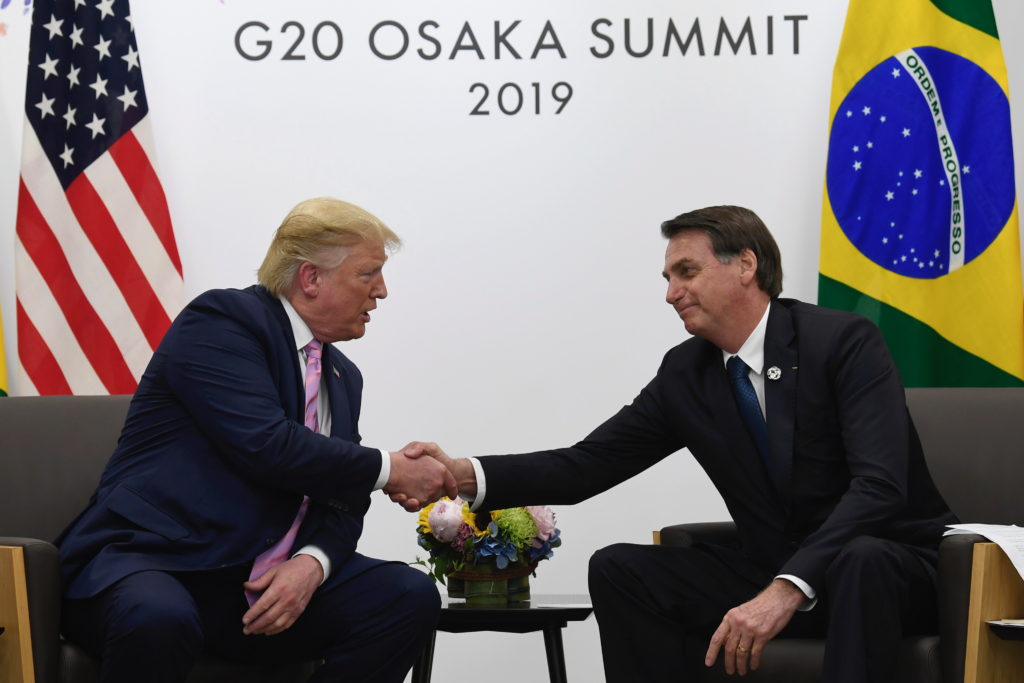
In recent years, nationalism has undeniably surged into public view. With the rapid rise of nationalist populist parties in Europe and the presidency of Donald Trump, leaders of this political ideology have seen power and office across the world. Scholars have grappled with the potential impacts on international relations and have largely decided that a nationalist ideology complicates cooperation and heightens tension between states.
Kathleen Powers, a professor of Government at Dartmouth, adds to the conversation with an original work. Her 2022 book Nationalism in International Politics challenges the notion of a uniform nationalist ideology. She argues that some nationalisms are “committed to equality” whereas others focus on “in-group unity.” Using a social psychology lens, she claims that not all nationalist ideologies impede international cooperation and lead to conflict escalation. Indeed, she claims, equality-centered nationalisms create the reverse effect. Using surveys and experimental data from the US and Europe, she supports her theoretical framework and evidences her argument.
Chapter 1 begins by attempting to contextualize nationalism’s impact on international conflict over the last century. The first two pages describe Macron’s 100th anniversary Armistice Day speech, in which he stated that nationalist passions presage war. After this, Powers sets up her argument refuting this claim and addressing her core research puzzle. This introduction sets the precedent for the rest of the chapter and the next: lots of overarching ideas speckled with a few brief descriptions of relevant moments throughout history to keep the section from slipping into pure theoretics—barely. It is at this point that one learns that Nationalisms in International Politics is little more than a thesis packaged in book form.
Chapters 3, 4, and 5 test her theory through an original survey conducted among the American public and by utilizing existing surveys from the EU. The analysis sufficiently supports her claims and reveals some interesting enough results, including that US “unity-oriented nationalism softens stances on China.” However, these sections are dense and empirical and, therefore, are not for the faint-hearted. In the concluding chapter, Powers outlines what her research means for the future and addresses the limitations of her argument, which readers ought to appreciate.
I initially picked up this book looking for an interesting read on how the nationalist phenomenon has impacted and will continue to impact international relations. Yet, Powers’ work is clearly a piece of research dressed up with a nice cover and organized in such a way that it can pass for a book. It is anything but mainstream, and I would implore anyone to seriously consider his or her interest and expertise in the topic before purchasing it. Moreover, I would not recommend anyone attempt to trawl through the entire thing, since the book often relies on social science jargon that makes it a heavy read. The book assumes the reader is well-versed in international relations theories and can immediately recall their claims. For example, Powers notes that her framework builds upon “psychology’s relational models theory.” Unless this automatically means something to you, which for me it did not, the description that follows is little more than a bank of social science buzzwords: “relational models are ‘relational’ in the sense that they apply to social interactions… They are ‘models’ because they imply implicit rules of thumb for how we think about and behave toward other people and groups.” If you are a scholar or international relations student looking for an interesting piece of research to reference, then, by all means, give this book a chance. Otherwise, be prepared to rely on Google to make sense of every few sentences.
It is difficult for me as an undergraduate student to critique the thesis of a well-established professor at Dartmouth, but I believe there are a few obvious limitations to her argument. Firstly, Powers’ framework suggests all forms of nationalism can be categorized into one of two boxes. This doesn’t seem to be sufficiently justified in my opinion, and it feels binary for the sole sake of simplicity in her argument. A country’s political ideology is nuanced and intricate, which brings me to my second criticism. Powers doesn’t focus enough on the unique histories of each nation that might lead them to act in accordance with or against her theory. She doesn’t place much emphasis on case studies, erasing regions’ histories almost entirely from the discussion, instead focusing on the here and now of the nationalist ideology. To make her theory applicable to a variety of contexts, she oversimplifies.
I enjoyed how her argument challenges the stereotype that nationalism is not conducive to peace and stable relations between nations. However, in doing so, she insinuates that there are “good” and “bad” nationalisms.
I find this problematic as passing moralistic judgment should never be the goal of a piece of explorative scholarship like Powers’ book. While this may not have been her intention, it can come across that way to the reader. Powers, admittedly, addresses this concern in the conclusion. She highlights how “committing to equality could stave off a long and deadly war” but also that “reciprocal exchange associated with equality could … cause endless tit-for-tat violence.” Yet, she ultimately falls on the side of equality-based nationalism and seems to imply her support for this as a better solution for cooperation and peace.
Overall, this book certainly isn’t an easy read, but it has many commendable qualities. It is, to Powers’ knowledge, “the first study to adapt relational models theory for research on nationalisms,” meaning it is most likely a good addition to the scholarly conversation. However, with its overly used social science jargon and dense quantitative analysis, unless you are an international relations junkie, scholar, professor, or the like, I’d give this one a miss.

Be the first to comment on "Nationalisms, Internationally?"